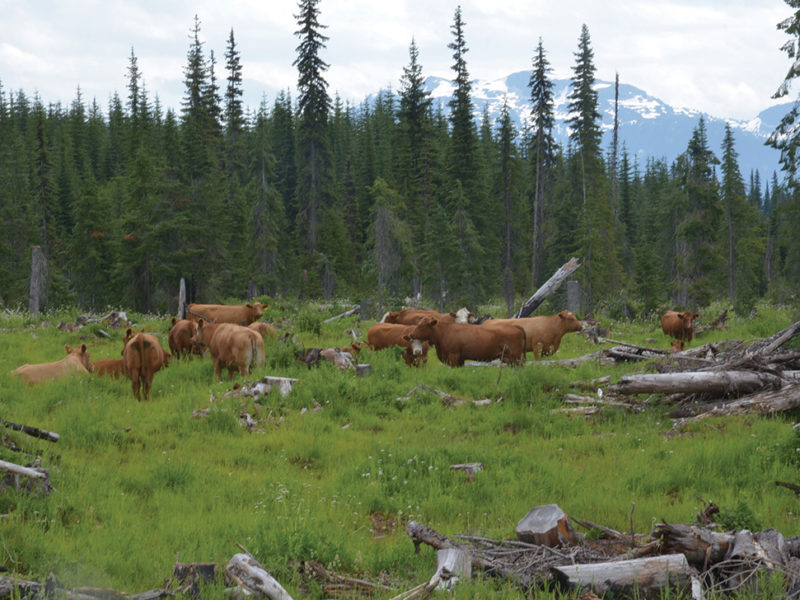VERNON – Frustration filled Werner Stump’s voice as he addressed the North Okanagan Livestock Association on November 15 regarding the Forest and Range Practices Act (FRPA), which the province wants to amend.
“You have heard me talk about this for quite a while and unfortunately I don’t have good news,” he says. “There has been no progress at this point.”
As chair of the BC Cattlemen’s Association land stewardship committee, Stump has been working closely with the province, which launched a review of FRPA in 2018.
“We have been trying to get amendments to FRPA to do two things,” he says. “One, to create the legislative requirement to manage for forage and, ultimately, with the objective of managing forage on a sustainable basis like they do timber. And second, a different type of management on Crown ALR land – a level of management that would be respective of the agriculture potential of those lands and the intent of the ALC.”
It’s ironic that legislation titled “range practices” speaks so little about range.
“You know when you read the act you only see the word ‘range’ a couple of times,” notes BCCA general manager Kevin Boon.
Boon says the bill that would revise the existing act includes improvements.
“We support the idea of forest landscape planning that is being introduced, but the legislation does not specify that range tenure holders are to be included in the planning,” he says.
Timber supply, conservation of the environment, Indigenous peoples’ values, local community values and forest health are all listed as objectives to be considered in a forest landscape plan, but there is no mention of range.
“They tell us that range is an implied value and we will see more representation of our needs when the regulations are written,” says Boon. “Well, we’ve been burned by this ‘implied’ argument before. When they get around to writing the regulations, they say well, it’s not in the legislation so therefore we can’t put it into the regulations. We simply don’t trust that it will happen.”
Stump says there were indications that ranchers’ concerns were being heard, noting that Peace River rancher Mike McConnell is a member of the Forest & Range Practices Advisory Council.
“Everything seemed to be going just fine,” he says. “In fact, they had a lot of recommendations that were consistent with what we had put on the table. Certainly the mandate of managing forest sustainably for the good of range, wildlife and other values was in their recommendations.”
But hopes were dashed when the legislation appeared.
Stump says that when the Bill 23, the Forest Statutes Amendment Act, was introduced in October, his committee was “very displeased, on the verge of disgusted” with the amendments.
“None of the work we had been doing previously had been heard and reflected in that bill,” he says. “It’s really bizarre. Bill 23 continues to reflect the timber-centric culture within the ministry that we must deal with.”
Stump, a registered professional forester, doesn’t blame forest companies.
“Timber companies do an excellent job of growing trees and adhering to the present laws and regulations,” he says. “But if there is no law mandating that they protect range values, they are not going to add that additional cost into their planning.”
Concerns about use of ALR land for growing trees was left out of the amendments as well, despite the fact the Agricultural Land Commission Act trumps the Timber Act, notes Boon.
Cattlemen hope restructuring initiatives within the BC Ministry of Forests, Lands, Natural Resource Operations and Rural Development led by minister of state Nathan Cullen will raise the profile of range.
“We have requested that they create a separate division to provide leadership for agriculture on Crown land, with a chief agrologist similar to the position of chief forester who would report directly to the minister,” explains Stump. “Range would, of course, be within that mandate, but it would also include invasive plants and water management and ALR.”
Stump says recent talks with FLNORD have not taken their usual cordial approach.
“We have been blunt,” he says. “We tried to carry the flavour of what we believe the membership felt. The bill continues to ignore range.”


 Christmas tree growers face a grim future
Christmas tree growers face a grim future